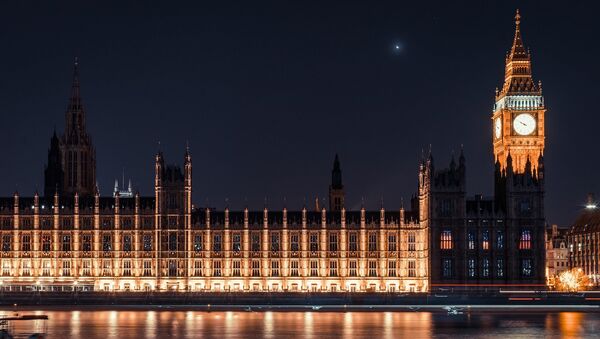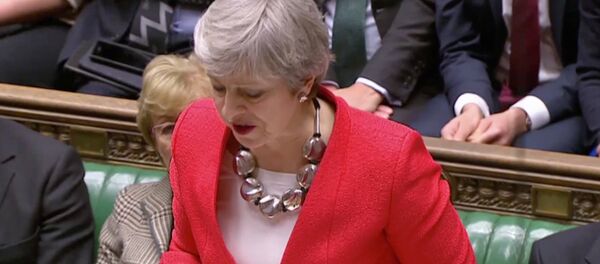The vote for Amendment A to May's deal, also called the "Spelman Amendment" for the Conservative lawmaker who proposed it, was barely passed by the House of Commons, with 312 votes for and 308 against. Caroline Spelman's amendment simply said, in no uncertain terms, that parliamentarians would commit themselves to avoiding a no-deal Brexit by passing some kind of agreement with Brussels for what a post-Brexit relationship will look like before the UK leaves the EU on March 29.
The other amendment, F, colloquially called the "Malthouse B" Amendment after Housing Minister Kit Malthouse, aims to create a framework for a so-called "managed no-deal Brexit," providing a way forward in case Parliament fails to affirm a deal with Brussels. Lawmakers firmly rejected the proposal, a compromise between Remainers and Euroskeptics that would have steered around the economic trauma of a raw no-deal exit and instead focused on minimizing disruption through "mini-deals" by both London and Brussels. The vote was 164 for and 374 against.
In another slice of Brexit madness, the government has to vote whipped against this — its own motion. pic.twitter.com/Gck3KySnCn
— Hannah Al-Othman (@HannahAlOthman) March 13, 2019
A third vote Wednesday further affirmed Parliament's conviction to reject a no-deal Brexit under any circumstances — it passed 321 for and 278 against.
In comments following the votes, May said, "The legal default in UK and EU law remains that the UK will leave the EU without a total deal unless… something else is agreed."
"The onus is now on every one of us in that house to find out what that is."
She reiterated that a no-deal Brexit would damage the "fragile trust between the British public" and the House of Commons."
"We could seek to negotiate a different deal, however, the EU has been clear that the deal on the table is the only deal available."
May's Brexit deal, arrived at in November 2018, was first rejected by an enormous margin in January following a delay on the vote — the biggest defeat of any government in any vote, ever. While EU leaders indicated minimal interest in renegotiating the basic terms of the agreement, the changes May was able to extract from Brussels were put to a second vote on Tuesday, which Parliament also shot down.
Parliament will now have to weigh the question of trying to extend the Brexit deadline, a question it will take up on Thursday. May noted that the EU is only likely to agree to such an extension if a deal has been agreed upon about Brexit itself, though.
Opposition leader Jeremy Corbyn, who leads the Labour Party, attacked both the idea of extending the Brexit deadline as well as the possibility of a no-deal Brexit. He promised a compromise solution, saying Labour has a credible alternative plan that will accomplish "what the prime minister has failed to do" — i.e., pass the House.




